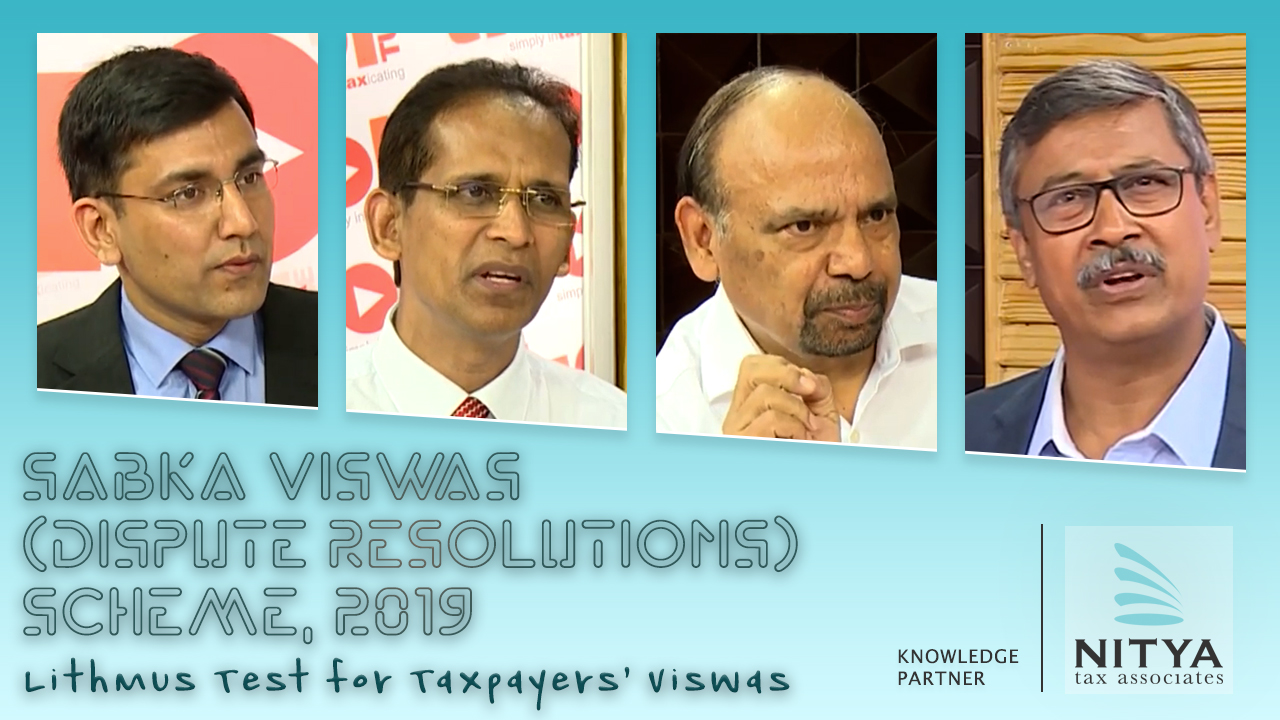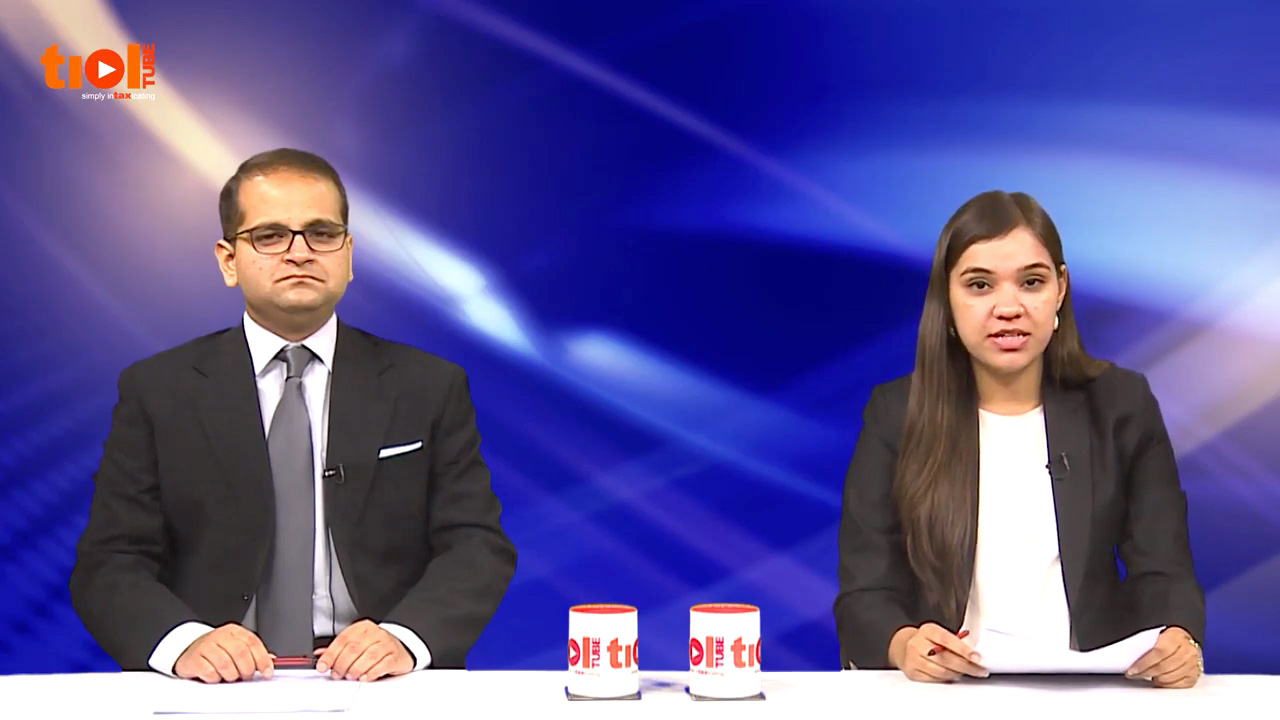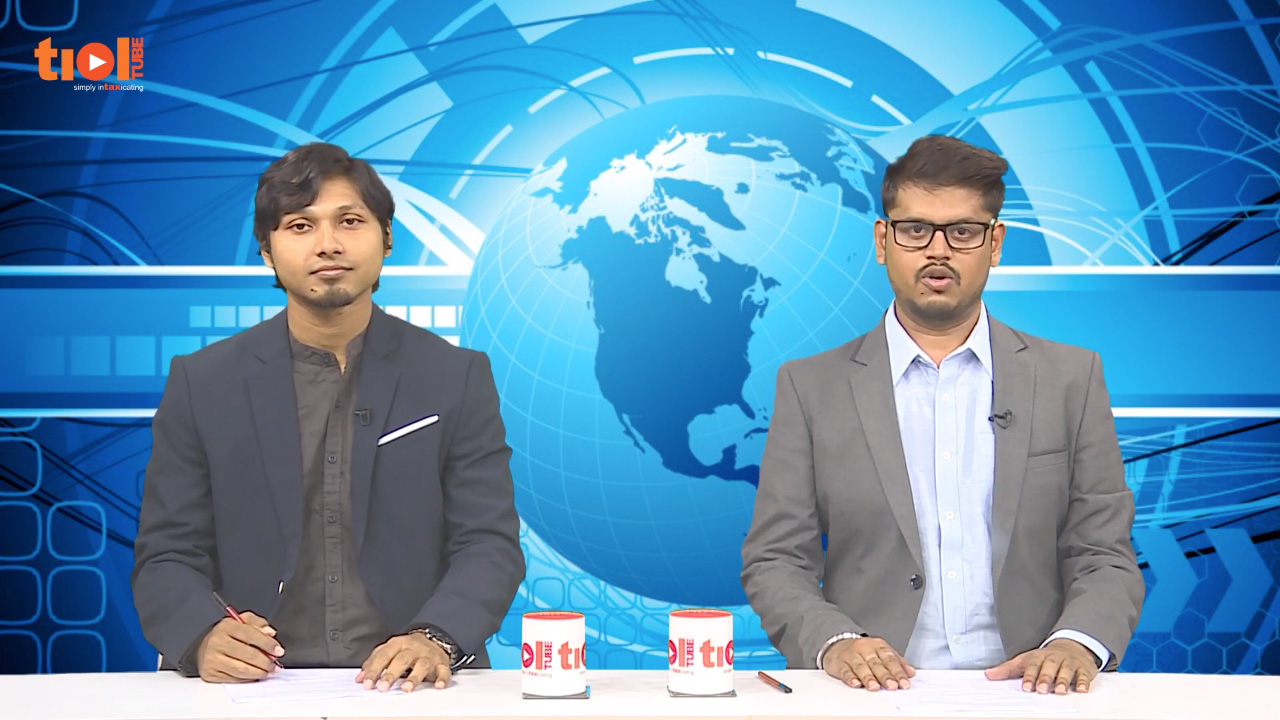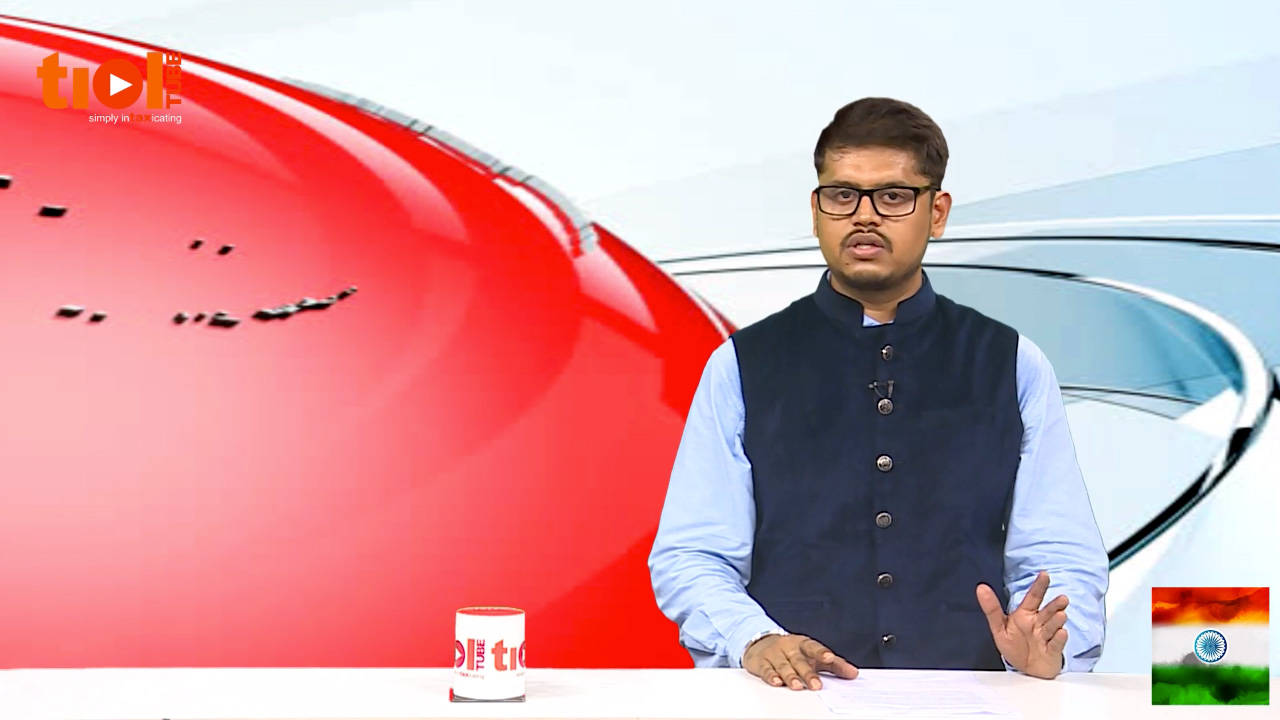|
SERVICE TAX
2019-TIOL-397-SC-ST
Empire Industries Ltd Vs Commissioner Of Central Goods And Service Tax And Central Excise
ST - The assessee had filed in challenge of the condonation of 111 days delay by the Tribunal in filing the Revenue's appeal - Later, the High Court observed that though the Tribunal did not record any elaborate reasons, it apparently accepted the Revenue's statement of the appeal having been delayed by 50 days on account of it having been filed through an official not authorized to do so with another 50 day delay being caused due to introduction of the GST Act - It also held that order passed in respect of application for condonation of delay is always discretionary and a liberal approach is to be adopted when dealing with such applications - Hence the same had been upheld.
Held - Delay is condoned - The judgment of the High Court warrants no interference with - Hence the assessee's Special Leave to Petition and pending applications are dismissed: SC
- Assessee's SLP dismissed: SUPREME COURT OF INDIA
2019-TIOL-2042-HC-MUM-ST State Bank Of India Vs CCE & ST
ST - CENVAT - Rule 2(l) of CCR, 2004 - CESTAT has held that premium paid on deposit insurance to DICGC is not an 'Input service' - Appellant submits that the issue is covered in their favour by the decisions in DCB Bank Ltd. 2017-TIOL-2849-CESTAT-MUM and Punjab National Bank 2018-TIOL-1395-CESTAT-DEL; that instead of taking a view that is contrary to the co-ordinate bench decision in the cited cases (supra), the Tribunal should have referred the issue to a Larger Bench; that in subsequent matters, the Tribunal has referred this very issue to the Larger Bench in Latur District Central Co-op Bank Ltd. 2019-TIOL-2099-CESTAT-MUM and, therefore, the impugned order warrants being set aside and the appeal be listed along with the other matters referred to the Larger Bench for a fresh decision on merits - AR submits that the impugned order of the Tribunal has been challenged by Revenue before the High Court to the extent it has not imposed any penalty upon the appellant; that the present appeal be heard along with Revenue's appeal - Matter listed on 13 September 2019: High Court [para 5, 7]
- Matter listed: BOMBAY HIGH COURT
2019-TIOL-2516-CESTAT-DEL Head Post Office Vs CCE & ST
ST - The only issue to be adjudicated is as to whether the Department is entitled to levy late fee where the ST-3 returns have not been filed in time - Rule 6 (2) of Service Tax Rules, 1994 says that the assessee shall deposit the service tax liable to be paid by him with the bank designated by Central Board of Excise and Customs for this purpose in form TR-6 or in any other manner prescribed by CBEC - W.e.f. 01/10/2014, it has been mandated that every assessee shall electronically pay the service tax payable by him through internet banking - Most importantly Rule 6 says that the service tax shall be paid to the credit of Central Government by the 6th day of the month and if it is to be deposited electronically through internet banking, by the 5th day of the month, immediately following the calendar month in which the service deemed to be provided as per the rules framed in this regard - It is also apparent that the ST-3 returns for 6 April 2010 till March 2015, cause thereof, have not been filed in compliance of the afore-said Rule 6 of Service Tax Rules - Rather there has been the delay in filing as big as that of 1016 days and as minimum as that of 25 days - It is also apparent that ST-3 return for October 2012 to March 2013 has not been filed till date - This is a definite violation of afore-said provisions and specifically violation of Section 70 of Finance Act - Rule 7 (c) of STR, 1994 is a provision making assessee to pay late fee in case the said time limit has not been met with by the assessee - There is no rebuttal on the part of assessee to the afore-notice delay in submission of ST-3 returns - No infirmity found in the impugned order, same is accordingly upheld: CESTAT
- Appeal dismissed: DELHI CESTAT
2019-TIOL-2515-CESTAT-MAD
Kumar's Electronics Vs CCE
ST - Whether the appellant is liable to discharge ST on the commission which they have received from the DTH operators for sale of recharge coupons when the DTH operators have discharged ST on the M.R.P of the recharge vouchers which, logically includes the commission which the appellant has received.
HELD: Issue is no longer res integra -on the recharge vouchers where the ST has been paid on the M.R.P by the main operator the commission agent/distributor need not pay ST on the commission received by him because commission also forms part of the M.R.P. on which ST has already been discharged -impugned orders set aside and appeals are allowed: CESTAT [para 7, 8]
- Appeals allowed: CHENNAI CESTAT
CENTRAL EXCISE
2019-TIOL-2514-CESTAT-BANG
CCT & CE Vs GEM Granites
CX - The assessee-company manufactures cut and polished granite slabs, monuments and articles falling under Chapter 25 of the CETA 1985 - Upon audit of records by the Revenue, it was found that the assessee availed Cenvat credit on HSD oil, the duty on which had been paid under protest - The Revenue issued SCN for the relevant period, the proposals in which had been confirmed upon adjudication - Thereafter, the Tribunal allowed the assessee's appeal, consequent to which the assessee claimed refund with interest - The Revenue did not accept the Tribunal's decision and appealed to the High Court - Meanwhile the assessee was served an SCN proposing to reject part of the refund, on grounds that there were no provision in the CEA 1944 which enabled refund of credit reversed under protest - On adjudication, the refund was sanctioned in part - On appeal, the Commr.(A) allowed relief to the assessee - Hence the Revenue's appeal.
Held - Considering the findings of the Commr.(A), it is seen that detailed reasoning has been given behind allowing the refund - It was held that being an EoU, the assessee could claim Cenvat credit for the duty paid on HSD oil used as fuel and when they are eligible to avail the benefit of the relevant notification - It was also held that the Revenue had not obtained a stay on the operation of the Tribunal's order - Moreover, as per Circular dated 10.03.2017, the Revenue is obliged to refund the amount even when the appeal is pending and no stay is granted by the higher courts - In view of the detailed reasoning given by the Commr.(A) as well as the Board Circular, there is no infirmity in the O-i-A in challenge: CESTAT
- Revenue's appeal dismissed: BANGALORE CESTAT
2019-TIOL-2513-CESTAT-DEL
Kamal Coach Works Pvt Ltd Vs CCGST
CX - Appellant is engaged in fabrication of bodies of motor vehicles for original equipment manufacturers such as Tata Motors Limited [TML] - chassis was supplied free of cost by TML on payment of applicable CE duty on which CENVAT credit is availed by appellant - after building the body, the finished vehicles are cleared back to TML on payment of duty - duty was paid by appellant on the basis of cost construction, in line with the decision of the Supreme Court in the case of Ujagar Prints - 2002-TIOL-03-SC-CX-CB - however, revenue was of the view that the activity undertaken by the appellant is in the nature of job work and hence valuation is required to be determined in line with rule 10A of the CE Valuation Rules, 2000 and duty is required to be paid on the value at which the principal manufacturer sells the motor vehicle ultimately - SCNs issued and demands confirmed, therefore, appeal before CESTAT.
Held: This issue has been settled in various decisions -Tribunal has held that the valuation is required to be determined in terms of rule 10A of the CE Valuation Rules, 2000 and accordingly differential duty demand has become payable - accordingly, the adjudicating authority is directed to re-quantify and restrict the demand to the normal time limit - appeals are disposed of by way of remand: CESTAT [para 6, 7]
- Matter remanded: DELHI CESTAT
2019-TIOL-2512-CESTAT-ALL
Maa Kamakhya Darbar Fragrances India Vs CCE & ST
CX - Appellant is engaged in the manufacture of Aggarbatties packed in printed duplex boxes/dibbies [dibbies], classifiable under CH 3307 4100 of the CET, attracting nil rate of duty - dispute relates to the dibbies manufactured by the appellant and consumed captively in packing the Aggarbatties - inasmuch as Aggarbatties were chargeable to nil rate of duty, the lower authorities have held that the captive consumption notification no. 67/95-CE dated 16.3.1995 would not be available to the appellant and they are required to discharge duty liability on the said boxes - accordingly, demands stand raised against them by invoking the longer period of limitation (in two notices only), which stand confirmed by the lower authorities along with confirmation of interest and imposition of penalties - appeal to CESTAT.
HELD: Impugned order stands passed by the Commissioner, without hearing the appellant in person - even though the adjudicating authority [AA] had fixed various dates of hearings and as such cannot be faulted upon, but the fact remains that the appellants were not heard in person - as such the impugned order can be held to be suffering from violations of principles of natural justice - further, the detailed process of manufacture, now being canvassed before the Bench by the appellant was not placed before the AA and as such his comments are not available - similarly the applicability of the Supreme Court's decision in the case of Ambuja Cement Ltd. - 2015-TIOL-321-SC-CX and the Tribunal's decision in the case of Funskool (India) Ltd. - 2017-TIOL-44-CESTAT-MUM were not placed before the AA, having been passed subsequent to the impugned order - in terms of the said decisions, the captive consumption notification no.67/95-CE is available to an assessee if the obligation in terms of rule 6 of Cenvat Credit Rules, 2004 stands discharged by the assessee - as per requirement of said rule 6, no cenvat credit is available to the manufacturing unit - the said fact requires verification - the applicability of the ratio of the said two decisions is required to be considered by the AA, in the facts and circumstances of the case, for which matter is required to be remanded -- it is ordered accordingly - the AA would also examine the appellant's plea on limitation, in the light of the precedent decisions - all the appeals are disposed of in the above manner : CESTAT [para 7, 8, 9, 10]
- Matter remanded: ALLAHABAD CESTAT
CUSTOMS
2019-TIOL-2534-CESTAT-BANG
Indo German Carbons Ltd Vs CC
Cus - Appellant, a 100% EOU, exported 20MTs of activated carbon to M/s Donau Carbon Corporation, USA vide Shipping Bill dated 28.08.2006 - however, due to quality problems, the foreign buyer returned 12.5MTs and the appellant had to re-import the same into India for re-processing - accordingly, on re-importation, the appellant filed BE dated 19.03.2007 and claimed duty exemption in terms of 52/2003-Cus, Sr.no . 15, Annexure-I [Goods re-imported within one year from the date of exportation from the unit due to failure of foreign buyer to take delivery] - however, in the BE, Shipping bill details of export were incorrectly mentioned inasmuch an earlier SB dated 16.03.2005 was referred to - thereafter, the imported goods were re-processed and exported in April 2007 - Audit party examined the BE and concluded that the goods could have been imported in terms of exemption notification 52/2003-Cus only if the import had taken place before the expiry of one year from the date of export - duty demand raised and confirmed, which order was upheld by Commissioner(A), therefore, appeal before CESTAT.
Held: Re-processing of the imported goods and finally exporting the same is not in dispute - appellant's case falls under sl. no. 14 of Annexure-I [Goods re-imported within three years from the date of exportation for repair and reconditioning] of 52/2003-Cus wherein a period of 3 years is provided from the date of exportation for repair and reconditioning - appellant has re-exported the goods within this period - impugned order is not sustainable, hence set aside and appeal allowed: CESTAT [para 6]
- Appeal allowed: BANGALORE CESTAT
2019-TIOL-2511-CESTAT-KOL
CC Vs S S Traders
Cus - The assessee has imported used and worn unmutilated and fumigated mix cloth and three Bills of entry were filed covering the consignments of import - At the time of original assessment, the declared value of imported goods was enhanced - The adjudicating authority ordered confiscation of imported goods for violation of Import Trade Control restrictions and the goods were confiscated under Section 111(d) of Customs Act, 1962 - He also imposed redemption fine under Section 125 of the Act @ @ 25- 30% and personal penalty under Section 112(a) of the Act @ 15 % - The Commissioner (A) has ordered reduction of redemption fine and personal penalty on the basis of ratio laid down by Three Member Bench of Tribunal in case of Omex International 2015-TIOL-582-CESTAT-DEL - The Three Member Bench has taken the view that redemption fine of 10% and penalty of 5% of the value of the imported goods, would be appropriate in case of import violating Exim Policy Provisions - No reason found to interfere with the findings of Commissioner (A) on the basis of such decision - In the result, the impugned order is upheld: CESTAT
- Appeal rejected: KOLKATA CESTAT
|








